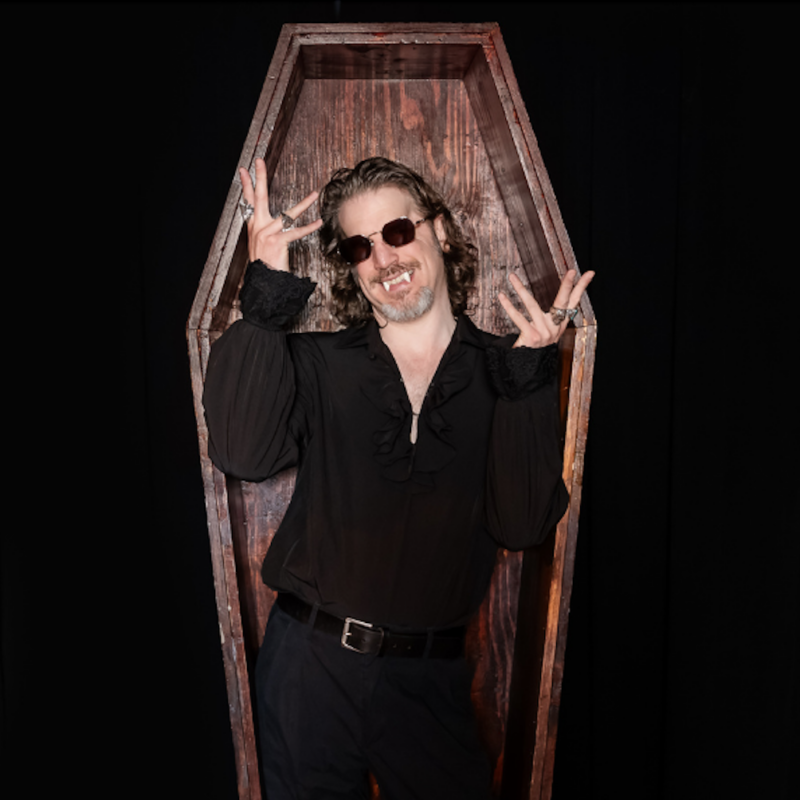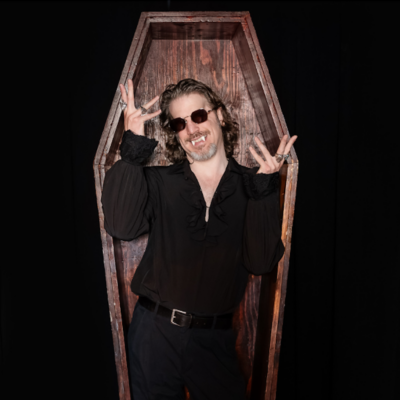In the world of documentary filmmaking, it’s rare to come across a story containing more than mere topical analysis tinged with one or more of the following: hip music, radical activism, gratuitously artistic shots, dry humor and/or cool graphics. Absorbing human drama tends to be more elusive and reserved for works of fiction, while the blunt reality captured by nonfiction is often void of grand emotions. Stephen Walker, director of Young@Heart, is either very talented or very lucky. His film manages to cross a threshold, capturing to the fullest potential that ideal tragicomic slice-of-life story about usual people doing unusual things.
 Who said that only the good die young? A gang of septuagenarian singers proves otherwise in Young@Heart. Now shake it like a Polaroid picture, people! |
With a repertoire of cover tunes borrowed from the likes of The Ramones, Talking Heads, Jimi Hendrix, James Brown, David Bowie, OutKast and others, it’s strange that a chorus comprising senior citizens could ever be mustered to sing them. Initially, the prospect of a film about geriatric renditions of classic rock and pop songs seems like a case of ironic amusement made for and by snarky gawkers. For its first quarter, with no explanation as to why these geezers would be involved in such a weird project, the film comes across as a slightly exploitative exercise in absurdity. Quickly, though, the subjects—members of The Young@Heart Chorus, which began in 1982 and is based in Northampton, Massachusetts—become characters in one of cinema’s all-time most fascinating depictions of old age.
| Trailer for Young@Heart. |
Early on, Young@Heart cuts away to a music video where we see the timeworn chorus starring in their own bizarre rendition of The Ramones’ “I Wanna Be Sedated.” In a series of interviews, we learn that participation is clearly not based in a desire to rock. Rather, the group’s tastes tend toward opera, show tunes and classical music. This is the WWII generation, and they show their age with a distaste for loud noises and a confusion over modern electronics. However, in a later video—in which the seniors get tattoos, drink beer, ride motorcycles and generally carouse—the whole scenario begins to come off like a glorious “Up yours!” to Old Man Time.
Amid all of this, we learn just why these octogenarians are challenging themselves to learn songs like Sonic Youth’s “Schizophrenia.” Explanations include the assertions that singing is good for you; participation helps you to forget creaky bones; it expands horizons, flexes your social muscles and exercises your brain; a few unique opportunities to travel; and the elders simply enjoy basking in the feeling of being onstage. As select individuals from the 20-plus member group are introduced, a quote from the chorus’ homepage—“It is possible to grow old without growing boring”—seems like more of a truth than a mere hope.
But, as one of film’s more colorful character puts it, “You don’t get out of this world alive, that’s for sure.” Despite every chorus member’s youthful vigor, Death eventually rears its ugly, aged head. Even layered with deeply upsetting emotions, however, life is celebrated by this odd, motley crew.
Between its hilarity, novelty and utter sadness, Young@Heart is an uncommonly introspective film and a profound inquiry into the meanings of age and mortality. While many documentaries examine culture and the plight of humanity, few have managed to juxtapose the two quite so deftly. Accessible and broadly appealing, only the punkest of player haters will fail to see the grace in this portrait of grandmas and grandpas who still know how to rock.





